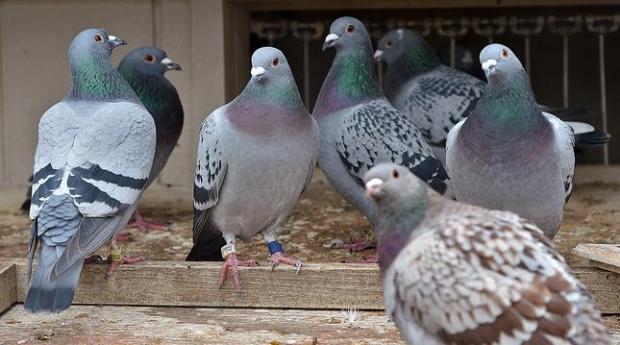
by Pigeon Patrol | Aug 17, 2021 | pet bird, Pigeon Control, Pigeon Droppings, Pigeon Patrol's Services, Pigeon Predators, Pigeon Spikes
If I say the word ‘pigeon’, it will conjure up an image in your head. In an urban environment this will probably be a ‘rat with wings’. However, if I say the word ‘dove’, you may well think of the second day of Christmas or Pablo Picasso’s ‘Dove of Peace’, a modern interpretation of an Early Christian symbol. Doves are seen as positive, but pigeons need to work on their public image.
The truth is many of what we Londoners call pigeons are in fact doves. The feral pigeons we see in Trafalgar Square are actually rock doves. To quote the RSPB, “there is no strict division between pigeons and doves.”
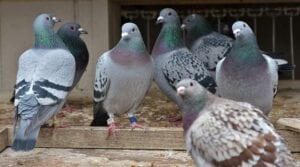
It’s easy to see why a rock dove would find our urban environment attractive. In many ways, our high-rise office buildings are a perfect substitute for a cliff face. This makes them ideal places to roost and nest and, being in an urban environment, they are also protected from many of their natural predators.
Are Pigeons Dangerous?
When you hear a pigeon coo it is hard to imagine that they can present a threat to human health. Unfortunately, this isn’t the case.
The British Pest Control Association recently published a study that found nearly 50% of feral pigeons were carrying Chlamydia psittaci. This can lead to ornithoses in humans, a nasty disease with symptoms that include chills, fever, sweating, severe weakness, headache, blurred vision, pneumonia and, in extreme cases, possible death.
In January 2019, pigeon droppings were also thought to be a “contributing factor” in the death of a child at a Glasgow hospital. Other pigeon related diseases include Histoplasmosis, Toxoplasmosis, and infections related to the Campylobacter, E. coli and Salmonella pathogens.
Pigeons are not themselves dangerous, but the pathogens contained within their faecal waste can be dangerous to humans.
What Are the Chances of Getting These Diseases?
In fact, pigeon-related diseases are uncommon in the UK, which is not the case in other countries, including the US. Unless you are directly dealing with pigeon nests or waste, it is unlikely you will encounter the pathogens that cause the diseases. When we deal with pigeons, we always wear the right personal protective equipment (PPE) to ensure we are protected from these pathogens.
For most Londoners, the main problem is that pigeons are a nuisance. Roosting birds defecate down buildings, making them look dirty. For a business, this doesn’t give the right impression. Imagine you must choose between two restaurants – one is clean and the other has pigeon guano down its front – you are going to choose the clean restaurant because its façade suggests an attention to detail and cleanliness.
Pigeon waste can also create a slipping hazard. Businesses and property managers have a duty of care to ensure their buildings and surrounding areas are safe. A pavement covered in guano can be slippery, which could result in injury.
How Do We Get Rid of Pigeons?
Firstly, it is important to remember, “all wild birds and their eggs in the UK are rightfully protected by law under the Wildlife and Countryside Act 1981.” It is strongly recommended that you do not attempt to deal with the problem yourself.
Secondly, these birds are often roosting in inaccessible places as a form of protection. It is therefore dangerous to try to reach them without the proper equipment and specialised training.
There are two main things you can do to protect your property from pigeons.
- Cut off their food supply – pigeons like an easy meal and so if you remove food sources they will move elsewhere. In your garden, this means removing food that has fallen on to the floor, ensuring bin lids are shut and covering compost heaps. Also, discourage people who think it is okay to feed them!
- Stop them roosting – there are multiple methods available, including netting and spikes. The intention isn’t to harm the bird, simply to make them move somewhere else.
Again, it should be emphasised that accessing the places where bird proofing measures need to be installed can be difficult and dangerous. It is therefore highly advisable to seek fully insured, well-trained professional help if you have a pigeon problem.
Source
Pigeon Patrol Products & Services is the leading manufacturer and distributor of bird deterrent (control) products in Canada. Pigeon Patrol products have solved pest bird problems in industrial, commercial, and residential settings since 2000, by using safe and humane bird deterrents with only bird and animal friendly solutions. At Pigeon Patrol, we manufacture and offer a variety of bird deterrents, ranging from Ultra-flex Bird Spikes with UV protection, Bird Netting, 4-S Bird Gel and the best Ultrasonic and audible sound devices on the market today.
Voted Best Canadian wholesaler for Bird Deterrent products ten years in a row.
Contact us at 1- 877– 4– NO-BIRD, (604) 585-9279 or visit our website at www.pigeonpatrol.ca
Pigeon/Pigeon Patrol / Pigeons Roosting / Vancouver Pigeon Control /Bird Spikes / Bird Control / Bird Deterrent / Pigeon Deterrent? Surrey Pigeon Control / Pest /Seagull deterrent / Vancouver Pigeon Blog / Birds Inside Home / Pigeons in the cities / Ice Pigeons/ What to do about pigeons/ sparrows , Damage by Sparrows, How To Keep Raccoons Away, Why Are Raccoons Considered Pests/ De-fence / Pigeon Nesting/ Bird Droppings / Pigeon Dropping/ woodpecker control/ Professional Bird Control Company/ Keep The Birds Away/ Birds/rats/ seagull/pigeon/woodpecker/ dove/sparrow/pidgeon control/pidgeon problem/ pidgeon control/flying rats/ pigeon Problems/ bird netting/bird gel/bird spray/bird nails/ bird guard
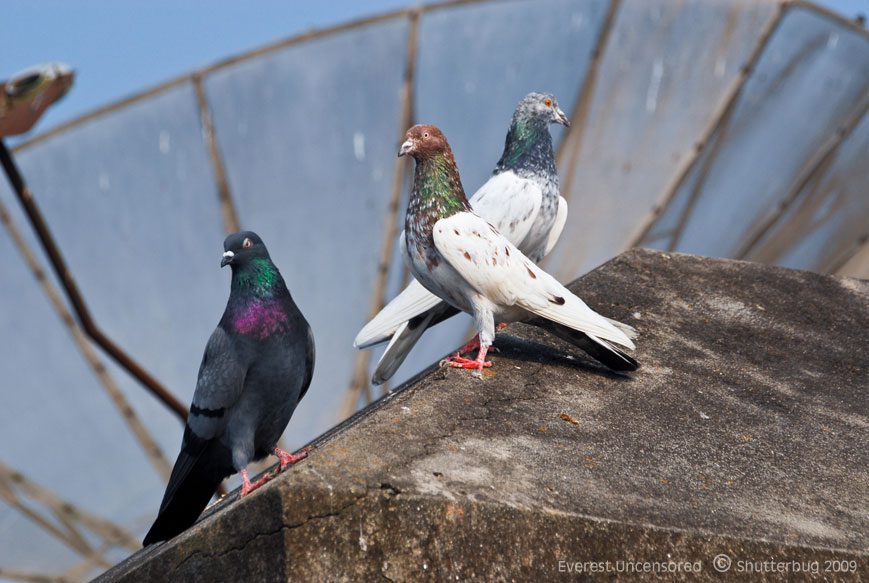
by Pigeon Patrol | Aug 17, 2021 | MBCA, pet bird, Pigeon Control, Pigeon Droppings, Pigeon Patrol's Services, Pigeon Predators
1. Reuters used them: The world’s most famous news agency was founded in 1850 and employed 45 feathered messengers.
2. They read maps: Their homing skills are still a mystery, but a 10-year Oxfor university study concluded they use roads to navigate, even turning corners at junctions.
3. They were the original email: in the early 1800s, the Rothschilds set up a network of pigeon lofts at all their European financial houses.
4. The Queen loves them: Not only does Her Majesty fancy them, but Mike Tyson is a fan. Plus, Maurizio Gucci once spent $10,000 on an American pigeon.

5. They’re clever: Pigeons are one of the only nine amimals (and the only non-mammal) that can recognise itself in a mirror.
6. They bob their heads for a reason: Their side-mounted eyes give them monocular vision, unlike the binocular vision of humans and owls, so they bob for depth perception.

7. They’re holy: Many religious groups, including Hindus, Muslims, and Sikhs, feed pigeons for religious reasons. Remember that the next time you shoo one.
8. They’re heroes: Several pigeons have been decorated in wartime, saving thousands of lives by delivering urgent messages under fire.
9. Their waste is invaluable: in the 16th, 17th and 18th centuries pigeon excrement was a valuable fertiliser protected by armed guards.
10. They’re precious: The world’s most expensive pigeon was bought by a British stud farm for £106,000.
Source
Pigeon Patrol Products & Services is the leading manufacturer and distributor of bird deterrent (control) products in Canada. Pigeon Patrol products have solved pest bird problems in industrial, commercial, and residential settings since 2000, by using safe and humane bird deterrents with only bird and animal friendly solutions. At Pigeon Patrol, we manufacture and offer a variety of bird deterrents, ranging from Ultra-flex Bird Spikes with UV protection, Bird Netting, 4-S Bird Gel and the best Ultrasonic and audible sound devices on the market today.
Voted Best Canadian wholesaler for Bird Deterrent products ten years in a row.
Contact us at 1- 877– 4– NO-BIRD, (604) 585-9279 or visit our website at www.pigeonpatrol.ca
Pigeon/Pigeon Patrol / Pigeons Roosting / Vancouver Pigeon Control /Bird Spikes / Bird Control / Bird Deterrent / Pigeon Deterrent? Surrey Pigeon Control / Pest /Seagull deterrent / Vancouver Pigeon Blog / Birds Inside Home / Pigeons in the cities / Ice Pigeons/ What to do about pigeons/ sparrows , Damage by Sparrows, How To Keep Raccoons Away, Why Are Raccoons Considered Pests/ De-fence / Pigeon Nesting/ Bird Droppings / Pigeon Dropping/ woodpecker control/ Professional Bird Control Company/ Keep The Birds Away/ Birds/rats/ seagull/pigeon/woodpecker/ dove/sparrow/pidgeon control/pidgeon problem/ pidgeon control/flying rats/ pigeon Problems/ bird netting/bird gel/bird spray/bird nails/ bird guard

by Pigeon Patrol | Aug 9, 2021 | Pigeon Droppings, Pigeon Patrol's Services, Pigeon Predators, Pigeon Spikes, Pigeons, Pigeons in the News
We learn that there are five senses (sight, hearing, touch, smell and taste). And we say that there is the “sixth sense,” meaning intuition or a hunch. But there is a physiological seventh sense that detects magnetic fields and, in some species, an eighth sense that detects electrical fields, and perhaps other senses still to be discovered.
Many animals (and plants!) have magnetoreception: birds, turtles, mice, bats, ants, lobsters, bees, newts, fishes, to list a few examples. The capability is also present in bacteria and may be a basic sense in virtually all organisms. However, it is one thing to demonstrate experimentally that an organism is able to sense and respond to magnetic fields, but it is quite another thing to learn how, or if, the magnetic sense is used by the organism.
A real-life function of magnetic sense is known in many animals. For instance, homing pigeons use magnetic sense to locate their home roost. Migratory birds use magnetoreception as well as celestial cues to find the way between nesting and wintering grounds. Sea turtles use this sense to find their nesting beaches and their hatchlings use it, along with light, to find their way to the sea. Some salamanders and toads use magnetic sense to orient themselves to the shore of a pond or to locate their home pond. Certain ants and bees use magnetic (and other clues) to navigate between their nests and food sources. Salmon use magnetic clues, with odor clues, to navigate back to their ‘home’ streams to spawn. An electrical sense of sharks interacts with magnetic sense, allowing them to orient themselves in the ocean.
The plot thickens, however, as researchers discovered magnetic reception and responses at all stages of fish development. For instance, magnetic fields affect the movement of sperm and their success in fertilizing eggs, as well as the size of the resulting embryos and their orientation. The behavior, orientation, heart rates and hormonal activities of larvae and fry are affected by magnetic fields too. The biological significance of these responses apparently remains to be determined.
And what about magnetic sense in plants, which don’t move around? Experiments have shown effects of magnetic fields on such features as flowering time, seed germination and seedling growth, photosynthesis, the behavior of pollen and roots, and enzyme activity. But the importance of these responses in the real world is anything but clear.
How does magnetoreception work? Only the briefest, most simplistic explanation can fit in the space of this essay. The earth’s main magnetic field has three features that can provide information to suitable receptors. The field varies in intensity, which varies with location and the horizontal or vertical orientation of the force. Another feature is called “inclination,” referring to the distance from the surface to the depths of the earth; inclination is very steep near the poles and flatter near the equator, so it gives an index of distance from the poles (i.e., latitude). The field also can provide a compass direction; the declination of a compass indicates deviation from the North Pole/South Pole axis of rotation of the earth (related, roughly, to longitude, and depending on latitude). In addition to the main field, there are local anomalies, commonly caused by magnetized rock.
How do animals sense those magnetic features? Some animals have tiny particles of magnetic material in their beaks, snouts, brains or elsewhere. Another way involves a protein called cryptochrome, found in both animals (including humans) and plants, which undergoes a complex reaction allowing detection of magnetic inclination. In bird eyes, cryptochrome is activated by blue light and may create a filter for light falling on the retina, making a pattern that changes when a bird moves its head, changing the angle between head and magnetic field. There are other possibilities too. In any case, any information gleaned from magnetic features has to be related to an internal map or some other point of reference, if it is to be used for orientation and navigation.
Note that the magnetic sense is so sensitive that it can work over very small distances, such as when a bird moves its head. It has also been invoked as a possible explanation for how foxes orient that marvelous jump as they pounce with their front feet on a rodent under the snow.
Source
Pigeon Patrol Products & Services is the leading manufacturer and distributor of bird deterrent (control) products in Canada. Pigeon Patrol products have solved pest bird problems in industrial, commercial, and residential settings since 2000, by using safe and humane bird deterrents with only bird and animal friendly solutions. At Pigeon Patrol, we manufacture and offer a variety of bird deterrents, ranging from Ultra-flex Bird Spikes with UV protection, Bird Netting, 4-S Bird Gel and the best Ultrasonic and audible sound devices on the market today.
Voted Best Canadian wholesaler for Bird Deterrent products ten years in a row.
Contact us at 1- 877– 4– NO-BIRD, (604) 585-9279 or visit our website at www.pigeonpatrol.ca
Pigeon/Pigeon Patrol / Pigeons Roosting / Vancouver Pigeon Control /Bird Spikes / Bird Control / Bird Deterrent / Pigeon Deterrent? Surrey Pigeon Control / Pest /Seagull deterrent / Vancouver Pigeon Blog / Birds Inside Home / Pigeons in the cities / Ice Pigeons/ What to do about pigeons/ sparrows , Damage by Sparrows, How To Keep Raccoons Away, Why Are Raccoons Considered Pests/ De-fence / Pigeon Nesting/ Bird Droppings / Pigeon Dropping/ woodpecker control/ Professional Bird Control Company/ Keep The Birds Away/ Birds/rats/ seagull/pigeon/woodpecker/ dove/sparrow/pidgeon control/pidgeon problem/ pidgeon control/flying rats/ pigeon Problems/ bird netting/bird gel/bird spray/bird nails/ bird guard

by Pigeon Patrol | Aug 9, 2021 | Pigeon Patrol's Services, Pigeon Predators, Pigeon Spikes, Pigeons, Pigeons in the News, Raccoons
It may sound hard to believe, but pigeons are actually a bit of a nuisance to human populations, no matter how attractive these pests can be. Pest control measures frequently include pigeon deterrent procedures due to the risk of disease and property damage that pigeons can bring.
When getting rid of pigeons, practical traps and repellents are the best options to utilise to ensure the birds are repelled from your property. Falconry, anti-bird spikes, parallel wires, bird netting, bird gels, decoy kites, and lasers are all effective in ridding pigeons from your property.
This article will go over some basic tips about pigeon behaviour as well as a range of ways to help keep pigeons away. Read on to discover more. If you are interested in our pigeon control services then please contact us for a quote.
Pigeon Behaviour
Pigeons have long been a bird that is renowned for its beauty but feared for its nuisance behaviour. The types of pigeons that regularly cause concern for home and business owners are known as feral pigeons.
Pigeons will typically gather together in a behaviour known as roosting, which is easily seen by detecting large groups of pigeons congregating on rooftops and the eaves and sides of buildings. Even if you go to great lengths to never feed pigeons to help get rid of them, most people usually feed pigeons inadvertently by dropping grain-rich foods on the ground and leaving the lids of waste bins.
Similar in the way that cockroaches and bed bugs are dependent on humans for food and shelter, it can be said that pigeons share the same trait. These pests have come to rely on grains for survival, which is why pigeons are a staple of the surrounding environment of agricultural sites, feed processing plants, as well as parks, large recreation areas, and restaurants located within cities.
This may not sound alarming, but pigeons regularly drop waste on sidewalks and buildings, which can damage the exterior look of structures over time. Additionally, people can slip and fall when walking through pigeon waste, and feral pigeons can actually carry a range of diseases.
With this in mind, considering how to get rid of pigeons is a valid question to ask.
How to Get Rid of Pigeons Without Hurting Them
It is illegal to kill pigeons or any other wild bird species due to the wording of the Wildlife and Countryside Act of 1981. This means that the birds can only be repelled, and by far, the best way to scare pigeons and keep nesting pigeons away is to use falconry.

Falconry
There are some products that you can use to deter pigeons (more on these below), but the use of birds of prey is great because this natural method directly triggers the fight or flight response within pigeons.
Our method is to allow our birds to circle and fly over the problem area on a regular basis. Pigeons soon get the message that the territory is occupied by a predator, and will take wing and move on.
Using a natural threat like this is the most humane and effective way to rid your property of pigeons on a long-term basis. Falconry can deter pigeons and prevent pigeons from becoming a nuisance to your property, and you do not have to worry about utilising spike strips or other pigeon deterrents to get rid of pigeons.
Additional Procedures to Take to Keep Pigeons Away
When it comes to figuring out how to get rid of pigeons, falconry is the most natural and effective form of pest control you can use. Precautionary measures like removing bird feeders or leaving food and water out of bird feeders can be effective, but it will likely take more than refraining from the urge to feed pigeons to break up the habit of roosting.
In all of the following procedures, you have to make sure that whatever form of pest control you take, the pigeons may become accustomed to the devices, and therefore, you may have to change up the procedure from time to time to get rid of pigeons and keep them away.
Let’s explore some methods to get rid of pigeons:
Anti-Bird Spikes
Anti-bird spikes or ‘spike strips’ are a set of attachable spikes that can be fastened to a surface to prevent pigeons from perching or nesting in areas you want to keep bird-free. The spikes will not necessarily harm the birds, which is good in order to stay on the right side of the law; however, the spikes will deter the birds from setting up shop wherever the spikes are laid.
Parallel Wires
Bird-proofing with parallel wires is a great way to keep pigeons away from your roof or other areas of your home that are attractive to the birds. This method works by using parallel wires that run across the structure that prevents pigeons from landing and nesting.
Bird Netting
Bird netting is somewhat unsightly but is very effective at keeping pigeons out of certain places. This mesh netting works much like the previous examples and creates a net barrier that prevents the birds from nesting.
Bird Gels
A sticky trap, or sticky gel, is a bird repellent that keeps pigeons at bay by using a chemical that creates a translucent barrier across structures that causes a bird’s feet to become stuck to the surface, which makes the bird struggle to get free. A pigeon would not want to go through the experience of having to break free of the sticky chemical a second time and therefore, will avoid landing on structures that contain the gel.
Decoy Kites
Decoy kites can get rid of bird populations by using a kite-shaped decoy bird image to sway in the wind to deter a pigeon from landing in a certain area. This method can be effective, but it may not work since decoys can sometimes be easily overlooked, which makes this method problematic to get rid of pigeons.
Lasers
Lasers used against pigeon populations can be effective due to the piercing light that blinds the pigeons once they scout an area for nesting or roosting. This method can be initially effective, however, the pigeons may become accustomed to the lasers over time and simply get out the way.
What Do Pigeons Hate?
Pigeons hate the sight or presence of other domineering birds, such as birds of prey. This is what makes falconry such a successful deterrent in getting rid of pigeon populations.
Additionally, pigeons do not like strong smells, such as cinnamon or hot pepper juice or spray. If you can safely reach the areas where the pigeon colony is roosting and nesting, you can spray and apply these substances to help drive the birds away.
How Do I Get Rid of Pigeons On My Roof?
Pigeon colonies look for places to hide and nest and there is no better area better suited for this than the roof. When it comes to figuring out how to scare off pigeons from your roof, the best method is to figure out methods that will keep populations away from the roof.
A good pigeon repellent to consider using for your roof is bird netting or parallel wires. These two methods need little upkeep on your part and can work around the clock to keep the birds firmly off of your roof.
If you are wondering how to scare pigeon colonies from roof structures, decoy kites require less installation, but you have to make sure the birds do not become used to the sight of the decoy kite.
Falconry is the easiest method to consider since our birds mimic the same basic patterns of flight and acclimating to heights as pigeons.
What Smell Do Pigeons Not Like?
As previously mentioned, strong and repellent scents and smells like pepper or even essential oils may deter pigeon populations for a time. To get rid of pigeons completely with smells, you would have to consistently spread the scents all over their roosting and nesting spots to make the habitat unlivable.
Source
Pigeon Patrol Products & Services is the leading manufacturer and distributor of bird deterrent (control) products in Canada. Pigeon Patrol products have solved pest bird problems in industrial, commercial, and residential settings since 2000, by using safe and humane bird deterrents with only bird and animal friendly solutions. At Pigeon Patrol, we manufacture and offer a variety of bird deterrents, ranging from Ultra-flex Bird Spikes with UV protection, Bird Netting, 4-S Bird Gel and the best Ultrasonic and audible sound devices on the market today.
Voted Best Canadian wholesaler for Bird Deterrent products ten years in a row.
Contact us at 1- 877– 4– NO-BIRD, (604) 585-9279 or visit our website at www.pigeonpatrol.ca
Pigeon/Pigeon Patrol / Pigeons Roosting / Vancouver Pigeon Control /Bird Spikes / Bird Control / Bird Deterrent / Pigeon Deterrent? Surrey Pigeon Control / Pest /Seagull deterrent / Vancouver Pigeon Blog / Birds Inside Home / Pigeons in the cities / Ice Pigeons/ What to do about pigeons/ sparrows , Damage by Sparrows, How To Keep Raccoons Away, Why Are Raccoons Considered Pests/ De-fence / Pigeon Nesting/ Bird Droppings / Pigeon Dropping/ woodpecker control/ Professional Bird Control Company/ Keep The Birds Away/ Birds/rats/ seagull/pigeon/woodpecker/ dove/sparrow/pidgeon control/pidgeon problem/ pidgeon control/flying rats/ pigeon Problems/ bird netting/bird gel/bird spray/bird nails/ bird guard
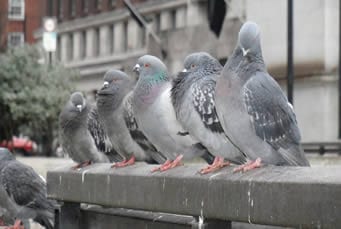
by Pigeon Patrol | Aug 3, 2021 | pet bird, Pigeon Control, Pigeon Droppings, Pigeon Patrol's Services, Pigeon Predators
Of all the birds in the world, the pigeon draws the most ire. Despite their reputation as brainless “rats with wings,” though, they’re actually pretty brilliant (and beautiful) animals. A new study adds more evidence that the family of birds known as pigeons are some of the smartest birds around, as Quartz alerts us.
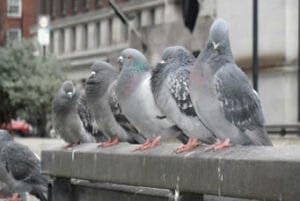
In addition to being able to distinguish English vocabulary from nonsense words, spot cancer, and tell a Monet from a Picasso, pigeons can understand abstract concepts like space and time, according to the new study published in Current Biology. Their brains just do it in a slightly different way than humans’ do.
Researchers at the University of Iowa set up an experiment where they showed pigeons a computer screen featuring a static horizontal line. The birds were supposed to evaluate the length of the line (either 6 centimeters or 24 centimeters) or the amount of time they saw it (either 2 or 8 seconds). The birds perceived “the longer lines to have longer duration, and lines longer in duration to also be longer in length,” according to a press release. This suggests that the concepts are processed in the same region of the brain—as they are in the brains of humans and other primates.
But that abstract thinking doesn’t occur in the same way in bird brains as it does in ours. In humans, perceiving space and time is linked to a region of the brain called the parietal cortex, which the pigeon brains lack entirely. So their brains have to have some other way of processing the concepts.
The study didn’t determine how, exactly, pigeons achieve this cognitive feat, but it’s clear that some other aspect of the central nervous system must be controlling it. That also opens up the possibility that other non-mammal animals can perceive space and time, too, expanding how we think of other animals’ cognitive capabilities.
Source
Pigeon Patrol Products & Services is the leading manufacturer and distributor of bird deterrent (control) products in Canada. Pigeon Patrol products have solved pest bird problems in industrial, commercial, and residential settings since 2000, by using safe and humane bird deterrents with only bird and animal friendly solutions. At Pigeon Patrol, we manufacture and offer a variety of bird deterrents, ranging from Ultra-flex Bird Spikes with UV protection, Bird Netting, 4-S Bird Gel and the best Ultrasonic and audible sound devices on the market today.
Voted Best Canadian wholesaler for Bird Deterrent products ten years in a row.
Contact us at 1- 877– 4– NO-BIRD, (604) 585-9279 or visit our website at www.pigeonpatrol.ca
Pigeon/Pigeon Patrol / Pigeons Roosting / Vancouver Pigeon Control /Bird Spikes / Bird Control / Bird Deterrent / Pigeon Deterrent? Surrey Pigeon Control / Pest /Seagull deterrent / Vancouver Pigeon Blog / Birds Inside Home / Pigeons in the cities / Ice Pigeons/ What to do about pigeons/ sparrows , Damage by Sparrows, How To Keep Raccoons Away, Why Are Raccoons Considered Pests/ De-fence / Pigeon Nesting/ Bird Droppings / Pigeon Dropping/ woodpecker control/ Professional Bird Control Company/ Keep The Birds Away/ Birds/rats/ seagull/pigeon/woodpecker/ dove/sparrow/pidgeon control/pidgeon problem/ pidgeon control/flying rats/ pigeon Problems/ bird netting/bird gel/bird spray/bird nails/ bird guard
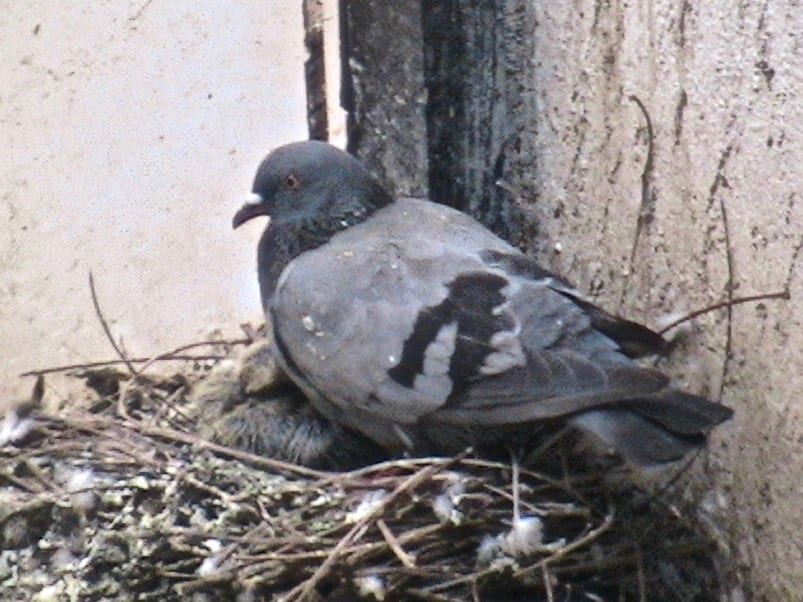
by Pigeon Patrol | Aug 3, 2021 | Bird Spike, Pigeon Patrol's Services, Pigeon Predators, Pigeon Spikes, Pigeons, Pigeons in the News
How do animals become problems? Drawing on interactionist theories of social problems and cultural geography, I argue that the construction of animals as problems relies upon cultural understandings of nature/ culture relationships, which in turn entail “imaginative geographies.” Specifically, modernity posits a firm boundary between nature and culture. Animals have their place, but are experienced as “out of place”-and often problematic-when they are perceived to transgress spaces designated for human habitation. Relying on New York Times articles from 1851 to 2006, and articles from 51 other newspapers from 1980 to 2006, this article focuses on the process by which pigeons as a species were problematized. I contend that pigeons have come to represent the antithesis of the ideal metropolis, which is orderly and sanitized, with nature subdued and compartmentalized. While typified as a health issue, the pigeon’s primary “offense” is that it “pollutes” habitats dedicated for human use. The catch phrase “rats with wings” neatly summarizes society’s evaluations of, and anxieties about, this bird. This metaphor reflects a framing of pigeons by claims-makers that renders them out of place in the cityscape. This study expands social problems theorizing to more thoroughly account for animals and the role of space.
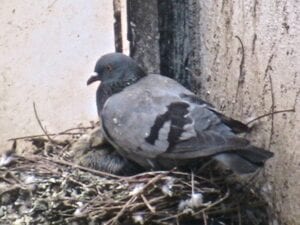
Source
Pigeon Patrol Products & Services is the leading manufacturer and distributor of bird deterrent (control) products in Canada. Pigeon Patrol products have solved pest bird problems in industrial, commercial, and residential settings since 2000, by using safe and humane bird deterrents with only bird and animal friendly solutions. At Pigeon Patrol, we manufacture and offer a variety of bird deterrents, ranging from Ultra-flex Bird Spikes with UV protection, Bird Netting, 4-S Bird Gel and the best Ultrasonic and audible sound devices on the market today.
Voted Best Canadian wholesaler for Bird Deterrent products ten years in a row.
Contact us at 1- 877– 4– NO-BIRD, (604) 585-9279 or visit our website at www.pigeonpatrol.ca
Pigeon/Pigeon Patrol / Pigeons Roosting / Vancouver Pigeon Control /Bird Spikes / Bird Control / Bird Deterrent / Pigeon Deterrent? Surrey Pigeon Control / Pest /Seagull deterrent / Vancouver Pigeon Blog / Birds Inside Home / Pigeons in the cities / Ice Pigeons/ What to do about pigeons/ sparrows , Damage by Sparrows, How To Keep Raccoons Away, Why Are Raccoons Considered Pests/ De-fence / Pigeon Nesting/ Bird Droppings / Pigeon Dropping/ woodpecker control/ Professional Bird Control Company/ Keep The Birds Away/ Birds/rats/ seagull/pigeon/woodpecker/ dove/sparrow/pidgeon control/pidgeon problem/ pidgeon control/flying rats/ pigeon Problems/ bird netting/bird gel/bird spray/bird nails/ bird guard











